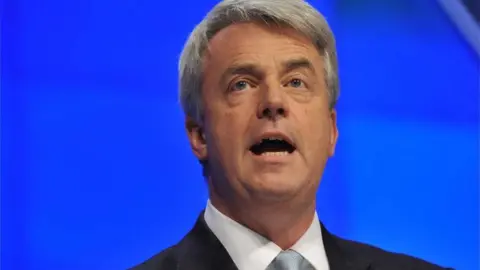Why NHS reforms are unlikely to bring a dramatic change

 Getty Images
Getty ImagesChanges to the NHS always make headlines.
The public has a strong emotional attachment to it, like in no other country.
Using its services is the way that millions of us interact with the public sector every day, often at times of great anxiety, sorrow, or joy.
When it comes to election time, it is often at the top of voters' lists.
So, no surprise there is always tension and trepidation in Westminster when governments want to make changes.
That's why so much has been written about ministers' plans to shift things around in the NHS. You can read an outline of them here.
The most important question, of course, is not what is behind the changes, but whether patients will see any difference to the care they receive in the real world in the years to come.
But it is worth, for a second or two, pondering the political journey the changes represent.
Lansley reforms
First, much has been made of the draft law finally burying the changes that were brought in by the coalition government and its former Health Secretary, Andrew Lansley.
Even their introduction was painful, causing massive political problems in the early days of the coalition.
As one wily observer of the intersection between health and politics recalled: "It was as if Lansley didn't have a political idea in his head and Cameron didn't have a practical idea in his head."
The changes turned GPs into consumers, picking and choosing health care on all our behalf.
Irrespective of whether the principle of increasing competition was a good one, the way the changes were brought in ratcheted up the level of bureaucracy in the health service in England, which was described by one source simply as often "a waste of time".

The coming legislation will unpick all of that.
Local health care providers and local councils will have to work together in future, as many of them already have been doing under a new structure.
And, of course, because it is the public sector, a new acronym is born - the ICS or the Integrated Care Systems.
The hope is this will have a significant impact in the real world, allowing local authorities and local clinicians to work together more easily.
Instead of worrying about commercial contracts, they will be worrying about patients.
And inside the NHS, there's a belief that the pandemic has shown exactly how this can work.
 Getty Images
Getty ImagesGroups of GPs, Primary Care Networks (known as PCNs, obviously), have been vital to the success of the roll-out of the coronavirus vaccine.
The principle is they are small enough to understand and know their patients, but big enough to make the economies of scale.
They had already been introduced, however, and to an extent the NHS has, for several years, been bringing in changes like this that found ways of working around the changes that the Lansley reforms had made.
In practical terms though, Thursday's burying of the Lansley reforms is a legal consequence of some changes that were already under way.
And in fact, when Jeremy Hunt was the health secretary a couple of years ago, it was clear that the Tories were already resolved to ditch the coalition's changes, with the NHS's blessing.
Market forces
So far, so not that surprising. What is somewhat surprising, or at least ironic, though is that the proposed changes mark a pretty big move away - at least in emphasis - from the use of competition and the private sector.
A Tory government that believes in free markets is presiding over a shift away from that and the response to it has been rather muted.
The use of market forces in health was, for a long time, a hotly contested argument in politics - not just whether or not the private sector should be used to fill in the gaps, but whether, as New Labour believed, competition between different health care providers and choice for patients was a big part of the answer to the NHS' woes.
It is worth noting that Tony Blair's health adviser was none other than Simon Stevens, now, of course, the chief executive of NHS England.
The private sector will still be able to provide services to the NHS. This is not a moment where they are being booted out.
But what one former minister described as the "ginger of a bit of competition" is fading, leading another source to talk about the "conversion of Simon Stevens".
Take control
There are also nerves at how the powers the secretary of state will have will read like "back to the future".
It is no secret that central government was frustrated, particularly in the early days of the pandemic, that actions they wanted to take at the top of the chain did not always have the desired effect at the end.
With the NHS' operational independence, sources complained at the time that the health care system was like a "black box".
As a result, the health secretary, as part of these changes, will regain some of the powers that were passed over to the NHS years ago.
The temptation to take control is clear, particularly in the current circumstances.
But one former minister warns of a two fold risk: "You can't run the system from Whitehall and it's politically foolish. He'll end up with every problem on his desk."
The defenders of the changes point out that the solutions being espoused have changed because the health service's problems have changed.
When competition and choice were the mantra, the NHS' problem was lengthy waiting lists.
Private sector efficiency and competition was seen as a way of driving them down.
Now the issues of demand and an ageing population means the gap between health and care is becoming smaller and smaller.
 PA Media
PA MediaWith pressure on budgets too now, one source said: "The pressure isn't to compete, it has to be to collaborate."
Despite some of the rhetoric around, however, the changes outlined on Thursday do not provide a long term solution to how we care for the elderly.
Espousing more working together between doctors, social care and councils could help, but it is not the big answer to the problems laid so bare during the pandemic.
That solution is still promised, but still some way off.
But the promises are not insignificant.
There will be changes to the NHS in England that will make a difference to how one of the most important organisations in the country is run.
The government will, in law, correct what many see as the mistakes of a decade ago - formalising some changes that have already been made in practice on the ground.
And a Tory government is stepping away, to an extent, from competition and the private sector with barely a political murmur.
With the pandemic and the Tories' traditional political vulnerability on the NHS, they have little appetite right now for something more radical, nor the political space to make the argument.
But the plans don't seem likely to add up to a dramatic turnaround for the NHS that will either suddenly tear up the system, or make all its problems quickly go away.
